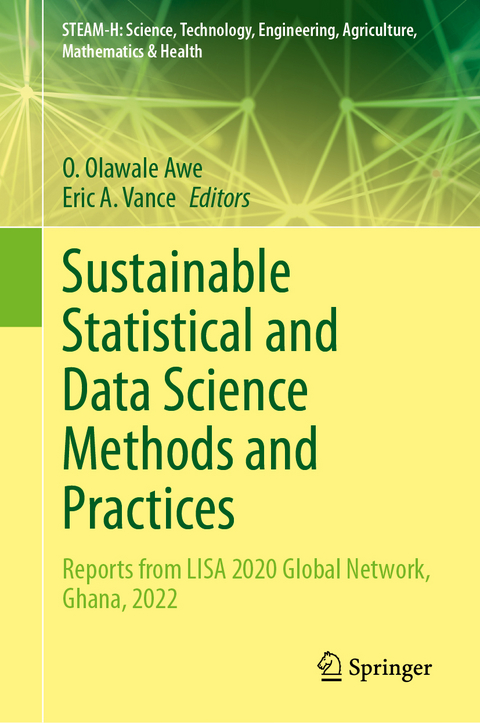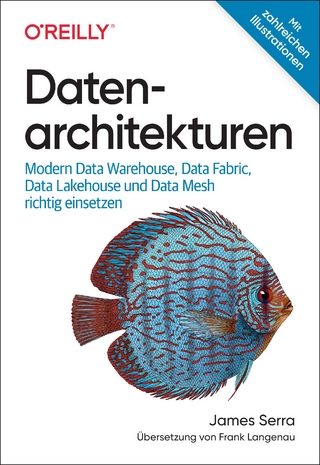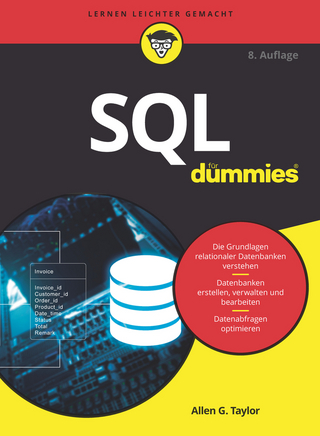
Sustainable Statistical and Data Science Methods and Practices
Springer International Publishing (Verlag)
978-3-031-41351-3 (ISBN)
This volume gathers papers presented at the LISA 2020 Sustainability Symposium in Kumasi, Ghana, May 2-6, 2022. They focus on sustainable methods and practices of using statistics and data science to address real-world problems. From utilizing social media for statistical collaboration to predicting obesity among rural women, and from analyzing inflation in Nigeria using machine learning to teaching data science in Africa, this book explores the intersection of data, statistics, and sustainability. With practical applications, code snippets, and case studies, this book offers valuable insights for researchers, policymakers, and data enthusiasts alike.
The LISA 2020 Global Network aims to enhance statistical and data science capability in developing countries through the creation of a network of collaboration laboratories (also known as "stat labs"). These stat labs are intended to serve as engines for development by training the next generation of collaborative statisticians and data scientists, providing research infrastructure for researchers, data producers, and decision-makers, and enabling evidence-based decision-making that has a positive impact on society. The research conducted at LISA 2020 focuses on practical methods and applications for sustainable growth of statistical capacity in developing nations.
lt;p>Olawale Awe is Vice President of the International Association for Statistics Education (IASE), an Elected member of the ISI (International Statistics Institute), and a Fellow of the African Scientific Institute, USA. He is the First LISA Fellow of the LISA 2020 Global Network at the University of Colorado, Boulder, USA. He has been a visiting scholar at the following institutions: Department of Statistics, Virginia Tech, and BECCA Lab of the University of Pennsylvania, USA (September 2013-September 2014); Department of Statistics, Federal University of Bahia, Brazil (March- September 2020); Institute of Mathematics, Statistics, and Scientific Computing, University of Campinas, Brazil (2021-2023). He has over fifteen years of experience as a Researcher, Lecturer, Senior Lecturer, and Professor at various institutions in Nigeria and beyond. His research interests include Computational Statistics, Machine Learning, Time Series Econometrics, Statistics education, and Bayesian Methods. He has facilitated several capacity-building workshops and seminars globally. He has a strong passion for building the capacity of statisticians in Africa and other developing countries. Awe holds a Ph.D. in Statistics from the University of Ibadan, Nigeria, and an MBA from Obafemi Awolowo University, Ile-Ife, Nigeria. He is an Affiliate member of the African Academy of Sciences (AAS) and a former Council Member of the International Society for Business and Industrial Statistics (ISBIS) (2017-2021) as well as a country coordinator (Nigeria) of the International Statistical Literacy Program (ISLP) of the ISI. He is a professor and Ph.D. Advisor at the Global Humanistic University (GHU), Curacao. He is also a visiting professor at the African Institute of Mathematical Sciences (AIMS).
Eric A. Vance is an Associate Professor of Applied Mathematics and the Director of the Laboratory for Interdisciplinary Statistical Analysis (LISA) at the University of Colorado Boulder, USA. He is the Global Director of the LISA 2020 Network. He researches the micro- and macro-theory of collaboration, i.e., what individual statisticians and data scientists need to know to become effective interdisciplinary collaborators and what institutions can do to promote interdisciplinary collaboration between domain experts, statisticians, and data scientists. He is an Elected Member of the International Statistical Institute and a member of its Statistical Capacity Building Taskforce. He is a Fellow of the American Statistical Association (ASA) and winner of the 2019 ASA Jackie Dietz Award for best paper in the Journal of Statistics Education for "The ASCCR Frame for Learning Essential Collaboration Skills." He is a past chair of the ASA Section on Statistical Consulting and the Conference on Statistical Practice. He has traveled through 85 countries and keeps these experiences in mind as he collaborates toward building capacity for sustainable development.
Chapter. 1. Using social media and network services to promote statistical collaboration laboratories: A case study of LEA Brazil.- Chapter. 2. Renewable Energy Forecasting Using Deep Learning Models.- Chapter. 3. Exploring feature selection and supervised classification algorithms for predicting Obesity among rural women for policy decisions.- Chapter. 4. Re-examining Inflation and its drivers in Nigeria: A machine learning approach.- Chapter. 5. Estimating Relative Response Rates and Preferential Ranking of Subjects.- Chapter. 6. Wealth Creation and Poverty Alleviation in a Nigerian State: A Recent Evidence-Based Survey.- Chapter. 7. Effect of Statistics on Collaboration for Enhancing Institutional Sustainability: A Case of Mzumbe University-Tanzania.- Chapter. 8. Strategies for the Sustainability of Stat Labs: A Case Study of Laboratory of Interdisciplinary Statistical Analysis, Lahore College for Women University Lahore, Pakistan (LISA-LCWU).- Chapter. 9. Advanced Mathematics and Computations for Innovation and Sustainability of Modern Statistics Laboratory.- Chapter. 10. A New Estimator for the GPD Parameters under the POT Approach.- Chapter. 11. A simple yet Robust Estimation of binned data: Egypt Income distribution and Geographical Inequality.- Chapter. 12. Supervised Machine Learning Classification Algorithms: Some Applications and Code Snippets for Practical Implementations in Python Programming.- Chapter. 13. Exploring the spatial variability and different determinants of co-existence of under-nutritional status among children in India through a Bayesian geo-additive multinomial regression model.- Chapter. 14. Predicting the Nature of Terrorist Attacks in Nigeria Using Bayesian Neural Network Model.- Chapter. 15. Salvage Value from Deterioration (SVD): An Optimal Inventory Model for Chicken Egg Marketing.- Chapter. 16. Structural Equation Modeling with Stata: Illustration using a Population-Based, Nationally-Representative Dataset.- Chapter. 17. Time series forecasting of seasonal non-stationary climate data: A comparative study.- Chapter. 18. Weighted Hard and Soft Voting Ensemble Machine Learning CLASIFIERS: Application to Anaemia Diagnosis.- Chapter 19. Machine Learning Approaches for Handling Imbalances in Health Data Classification.- Chapter. 20. The Intersection of Data and Statistics with Sustainable Development Goals.- Chapter. 21. Teaching Data Science in Africa via Online Team-Based Learning.
| Erscheinungsdatum | 08.01.2024 |
|---|---|
| Reihe/Serie | STEAM-H: Science, Technology, Engineering, Agriculture, Mathematics & Health |
| Zusatzinfo | XXIV, 415 p. 150 illus., 127 illus. in color. |
| Verlagsort | Cham |
| Sprache | englisch |
| Maße | 155 x 235 mm |
| Gewicht | 777 g |
| Themenwelt | Mathematik / Informatik ► Informatik ► Datenbanken |
| Schlagworte | Applications • conference proceedings • Data Science • Data Science Education • Interdisciplinary statistical analysis • LISA 2020 • Research • SDG • Statistical Analysis • Statistics Education • Statistics lab |
| ISBN-10 | 3-031-41351-2 / 3031413512 |
| ISBN-13 | 978-3-031-41351-3 / 9783031413513 |
| Zustand | Neuware |
| Informationen gemäß Produktsicherheitsverordnung (GPSR) | |
| Haben Sie eine Frage zum Produkt? |
aus dem Bereich


